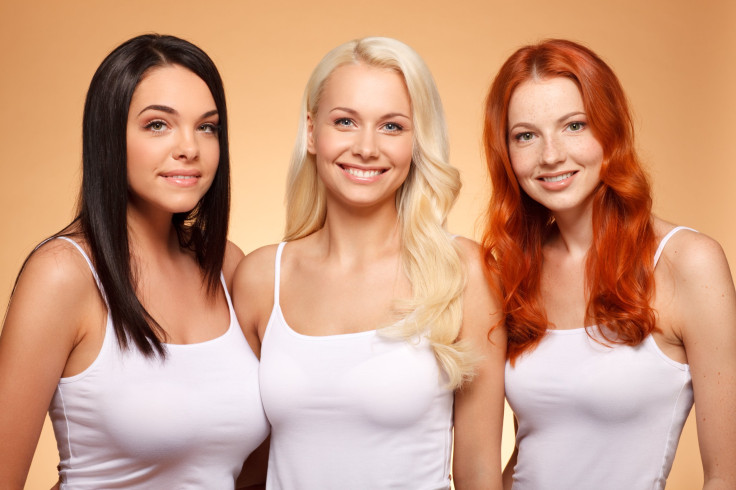Brunette, Blonde, or Red: What Your Hair Color May Say About Your Health

Hair color is associated with any number of personality traits: “Blondes have more fun" and " Redheads have bad tempers.” But what many people don’t realize is that while your hair color can give only limited insight on your personality, it actually offers a great deal of clues about your health. Let the war of the hair colors begin, and have a look at what your locks' hue may have to say about your health.
Brunette
Brown hair, the most common naturally occurring hair color, is also the most coarse and thick hair type. Don’t let this this fool you into believing it’s also abundant. Brunettes have fewer hairs on their head than their blonde and red-haired counterparts. According to Women’s Health, this means that those with brown hair are at a higher risk for hair loss, seeing as they have less to lose. Brown hair is caused by an increase in melanin. While these increased levels of melanin mean you are less likely to develop skin problems, they also mean you are more susceptible to nicotine addiction. Nicotine is known to accumulate in tissue containing melanin, based on a 2006 study. Melanin also prevents the body from metabolizing nicotine as quickly. This means that the drug stays in the bodies of brunettes for longer periods of time and causes addiction more rapidly. Not all is bad for brunettes. According to Men’s Health, men are more likely to marry a brunette than they are a blonde. This is because they associate women with brown hair as being more reliable and steady.
Blonde
Blonde hair is the second most popular hair color in the human population and is often associated with glamour and sex appeal. An experiment run by Men’s Health proved that men were more likely to offer help to a woman with blonde hair than any other coloring. Regardless of these positive traits associated with this lighter hue, there are some serious health risks for people with blonde hair. Blonde hair is caused by a lack of melanin in the body. Due to this lack of melanin, people with blonde hair are also more prone to skin and eye problems. According to a study, if your blonde hair is also accompanied by blue eyes you are at a higher risk for developing an eye condition called age-related macular degeneration. This condition is the leading cause of irreversible vision loss in Americans aged 50 and over. Not to worry too much my blonde haired, blue eyed readers, the condition can be prevented by protecting your peepers from prolonged exposure to sunlight using sunglasses. Along with fair eyes, fair skin also tends to come hand in hand with blonde hair. A lack of melanin in the skin means that people with blonde hair are at a high risk for developing melanoma.
Red
Red hair is by far the most rare hair color in the world. According to a report by the BBC , an estimated one to two percent of the world’s population has natural red hair and the majority of these individuals live in Northern Europe. Women’s Health reports that people with red-hair often have increased self-esteem. This is due to the self-fulfilling prophecy that people with red hair are fiery and passionate. Although having red hair does not actually alter your personality, believing that it does is just as effective. Men’s Health also revealed that people with red hair have far more active sex lives than those with brown and blonde hair. As far as physical health, a shocking study found that people with red hair are more likely to develop Parkinson's disease. The genetic mutation that led to their bright hair color, also gives them a higher risk for developing the degenerative disease. This same genetic mutation makes people with red hair have a higher tolerance for anesthesia, which may or may not be a good thing, depending on how you look at it. Sun exposure can often be a problem for people with red-hair. Based on a report by the BBC, this is nothing to worry about for redheads because they are able to produce higher levels of vitamin D in their bodies than other hair colors. This means that lack of sunlight doesn’t affect a redhead as much as it would someone else.
Before you get too worried after reading these health risks associated with hair color, please take note that it is only based on natural hair color. So, dyeing your hair from brown to blonde will have absolutely no effect on the health of your skin or eyes. However, it is always helpful to know what health problem you are at risk for in order to most effectively prevent these issues from arising.
Sources:
Gao X, Simon KC, Ascherio A, et al. Genetic determinant of hair color and Parkinson’s disease risk. National Center for Biotechnological Information. 2009.
Mitchell P, Smith W, Wang JJ. Iris color, skin sun sensitivity, and age-related maculopathy. Ophthalmology. 1998.



























